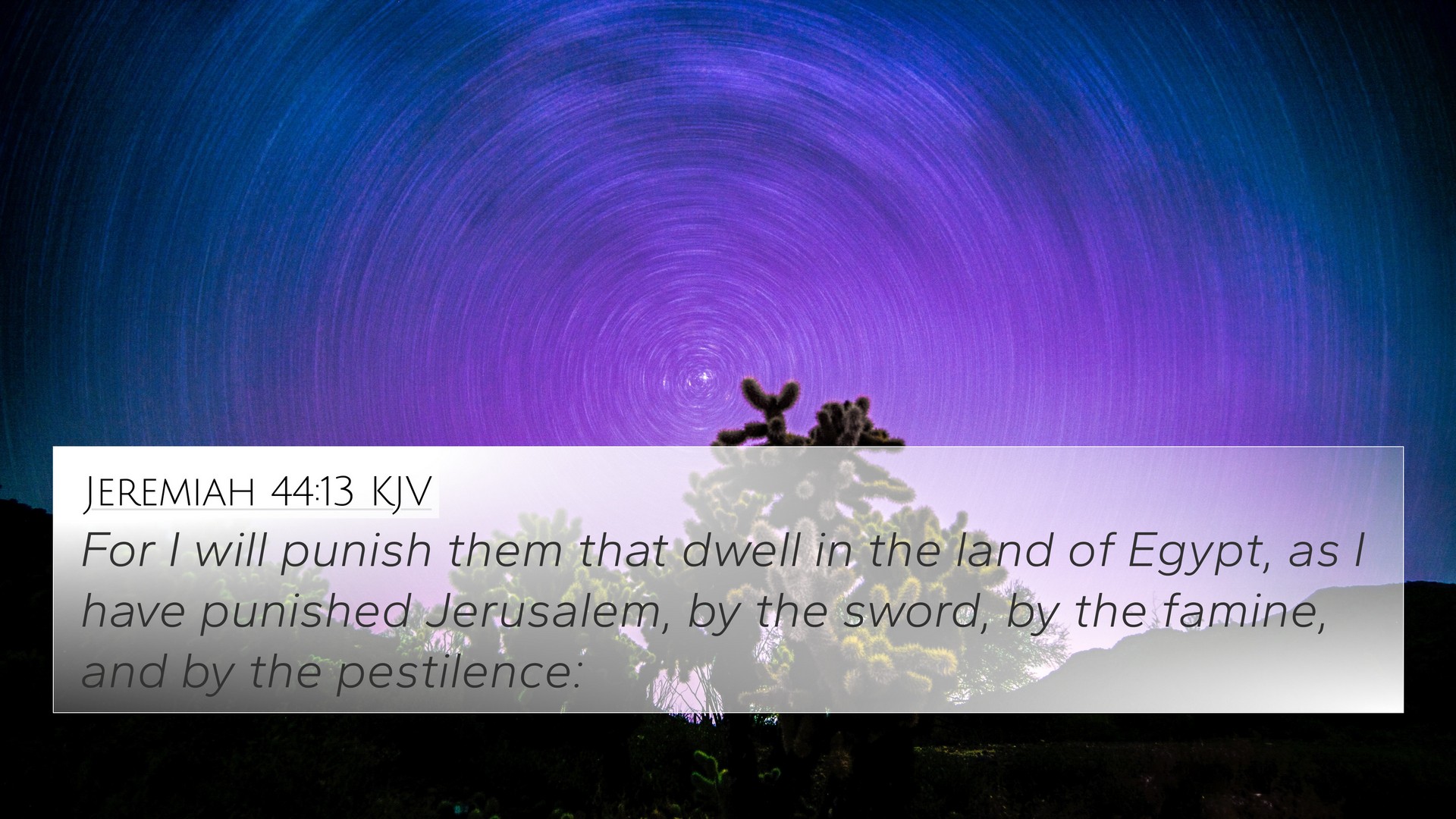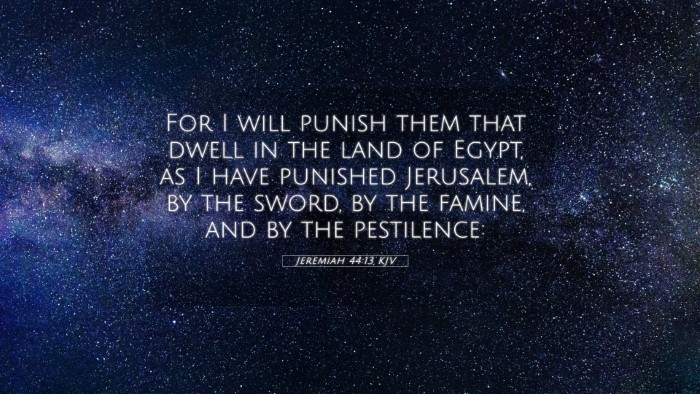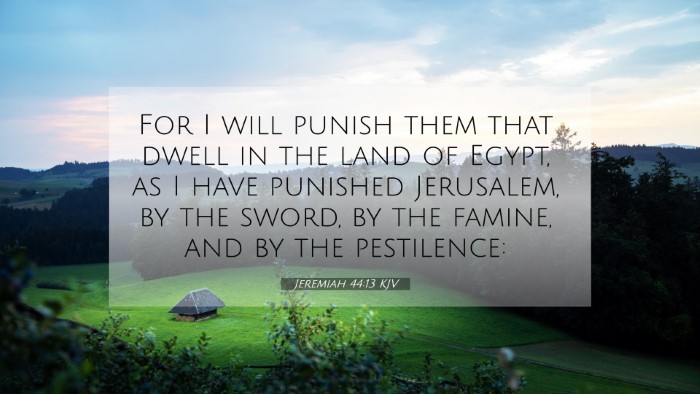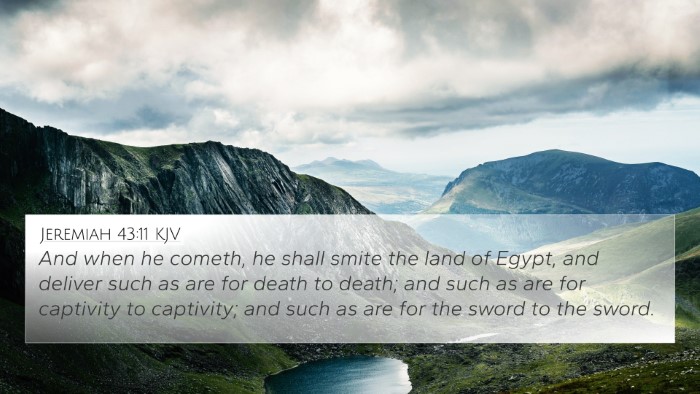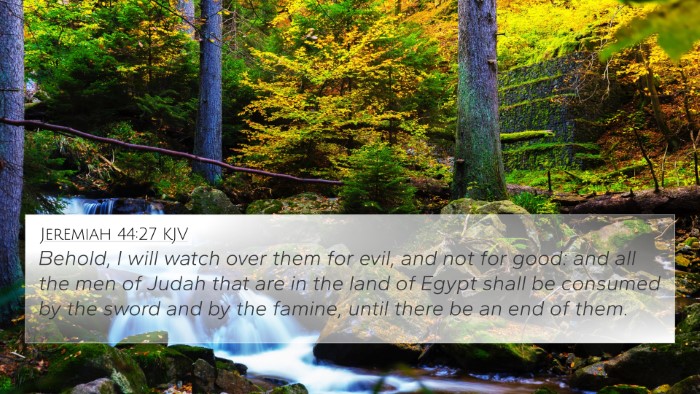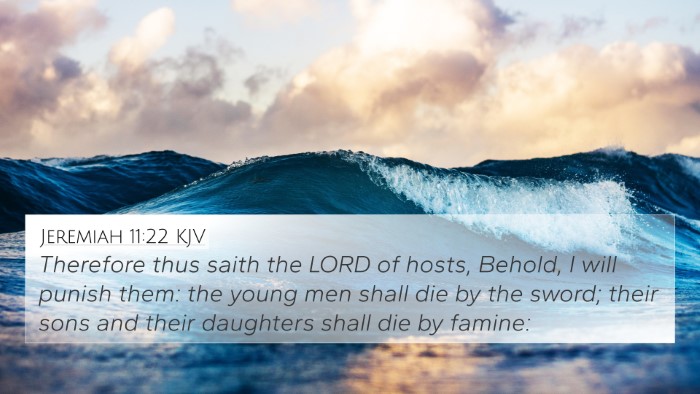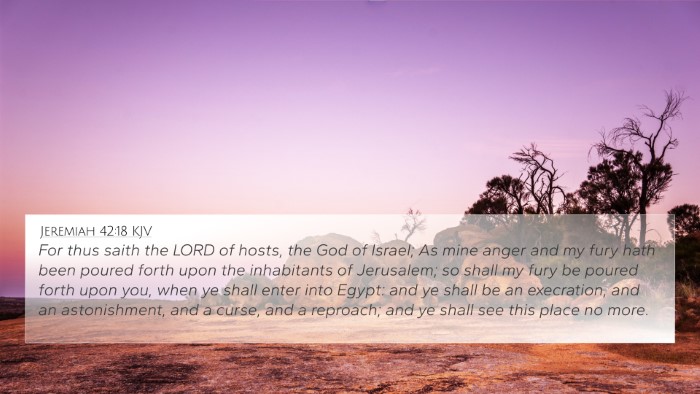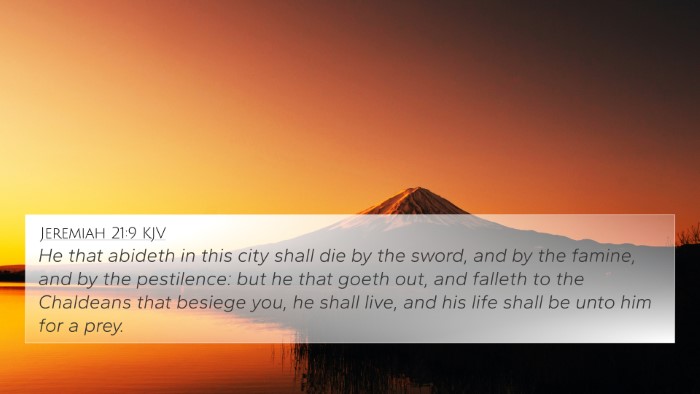Understanding Jeremiah 44:13
Verse Context: "And I will punish them that dwell in the land of Egypt, as I have punished Jerusalem, by the sword, by the famine, and by the pestilence." - Jeremiah 44:13
Combined Insights from Public Domain Commentaries
Jeremiah 44:13 reflects God's judgment on the people who have turned away from Him to worship false gods while residing in Egypt. This verse is part of a larger message from the prophet Jeremiah addressing the Jewish diaspora in Egypt, warning them of the impending consequences of their idolatry and lack of repentance.
- Matthew Henry's Commentary: Henry emphasizes that God's discipline is consistent. Just as He has brought judgment upon Jerusalem, the same standard will apply to the inhabitants of Egypt. Their safety in Egypt will not spare them from divine justice.
- Albert Barnes' Notes: Barnes discusses the nature of God's punishment, highlighting that it manifests through "the sword, famine, and pestilence." This triad signifies comprehensive judgment, demonstrating the severity of turning away from God.
- Adam Clarke's Commentary: Clarke nuances that the execution of God's wrath will be a direct consequence of their unfaithfulness, drawing parallels with historical instances where divine judgment was executed upon cities and nations.
Thematic Connections
This verse not only speaks to its immediate audience but also resonates through various Biblical themes such as judgment, divine retribution, and the consequences of idolatry.
Bible Verse Cross-References:
- Jeremiah 44:3: Acknowledges the idolatry and how it provokes God's wrath.
- Ezekiel 14:21: Lists the severe judgments God can bring upon a land for its iniquity.
- Lamentations 2:21: Speaks of the horrors of famine and sword as punishment from God.
- Amos 4:10: Discusses pestilence as a form of divine judgment.
- Isaiah 1:19-20: Contrasts obedience to God with the consequences of rebellion.
- Exodus 20:5: Warns of the repercussions of idolatry, affecting future generations.
- Deuteronomy 28:20: Lists curses for disobedience, including judgments like those mentioned in Jeremiah 44:13.
Connections Between Bible Verses
There are significant connections between this verse and others throughout the Bible that encapsulate themes of God's judgment and mercy:
- Hebrews 12:6: "For whom the Lord loves, He chastens." This illustrates that divine punishment is often an act of love, aiming to bring the sinner back to the truth.
- 2 Chronicles 36:16: A reference to how God's messengers were disregarded, leading to disaster.
- Revelation 3:19: Encouragement that God disciplines those He loves — aligning with the notion of correction in Jeremiah.
Comparative Bible Verse Analysis
In analyzing Jeremiah 44:13 in parallel with other scriptures, it is evident that the message of divine judgment for unfaithfulness resonates throughout the Old and New Testaments.
The repetition of judgment themes emphasizes God's unchanging nature towards sin and the call to repentance. From the consequences portrayed in narratives such as Jonah's warning to Nineveh to Revelation's admonitions, the consistent thread of God's righteousness calls for serious consideration.
Conclusion
Jeremiah 44:13 serves as a poignant reminder of the consequences of turning away from God. Through diligent cross-referencing, we find ample biblical support for the themes present in this verse, making it essential for anyone engaging deeply with Scripture.
Utilizing tools for Bible cross-referencing can greatly enhance our understanding and appreciation of interconnected scriptures. Through a structured approach, both individual study and group discussions can thrive, leading to a rich exploration of shared Biblical themes.
